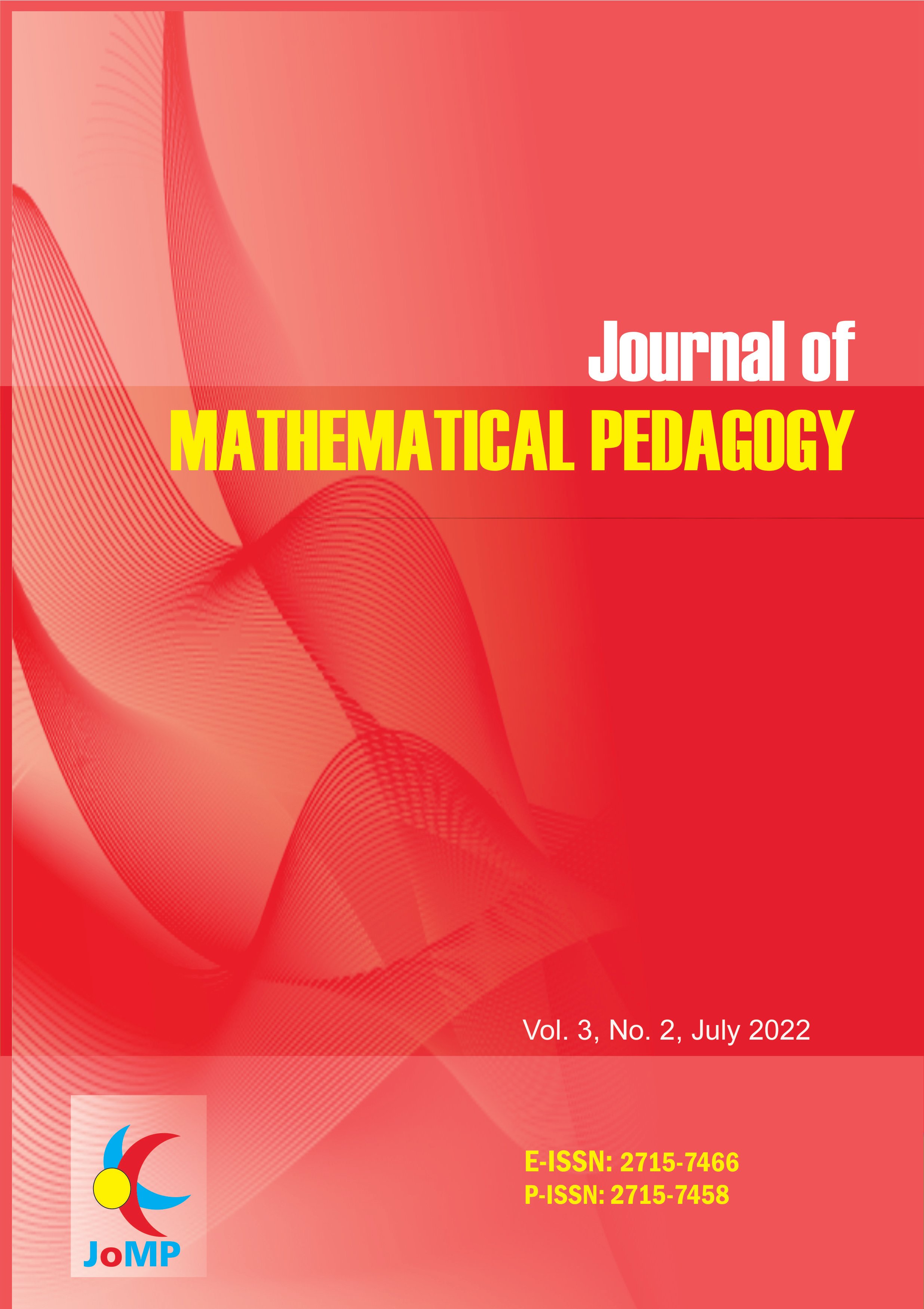Improving Students’ Mathematical Problem-Solving Skill and Self-Efficacy through Problem-Based Learning Models with Scientific Approaches
DOI:
https://doi.org/10.26740/jomp.v3n2.p81-97Abstract
This study aims to determine (1) the mathematical problem-solving skills of students who receive the PBL model compared to students who receive conventional learning, (2) improving the mathematical problem-solving skills of students who receive the PBL model with a scientific approach compared to students who receive conventional learning, (3) self-efficacy of students who receive the PBL model with a scientific approach compared to students who receive conventional learning, (4) improving the self-efficacy of students who receive the PBL model with a scientific approach compared to students who receive conventional learning. The research method used was a quasi-experimental method with a population of all VIII grade students at one of the junior high schools in Cilegon. Sampling was carried out by cluster random sampling technique. This results showed that the mathematical problem-solving skill of students who received the PBL model with a scientific approach was better than students who received conventional learning, improved problem-solving skills of students who get the PBL model with a scientific approach are better than students who get conventional learning, the self-efficacy of students who receive the PBL model with a scientific approach is better than students who receive conventional learning, and the improving in self-efficacy of students who get the PBL model is better than students who get conventional learning. Based on the research results, learning the PBL model with a scientific approach can be an alternative learning to improve students' problem-solving skills and self-efficacy.
References
Akmalia, N. N., Pujiastuti, H., & Setiani, Y. (2016). Identifikasi tahap berpikir kreatif matematis melalui penerapan model problem based learning dengan tugas pengajuan masalah. JPPM (Jurnal Penelitian Dan Pembelajaran Matematika), 9(2).
Anas, A. & Sartika, S. B. (2021). Profil Kemampuan Afektif Siswa SMP pada Mata Pelajaran IPA Ditinjau dari Gaya Belajar. JKPI: Jurnal Kajian Pendidikan IPA, 1 (1), 13-20.
Arends, R. I. (2015). Learning to Teach, 10th Edition. New York: McGraw Hill Education.
Bandura, A., Freeman, W. H., & Lightsey, R. (1999). Self-efficacy: The exercise of control. New York: W.H. Freeman
Harahap, E. R. & Surya, E. (2017). Kemampuan Pemecahan Masalah Matematis Siswa Kelas Vii Dalam Menyelesaikan Persamaan Linear Satu Variabel. EDUMATICA: Jurnal Pendidikan Matematika, 7 (1), 44-54.
Hosnan. (2014). Pendekatan saintifik dan kontekstual dalam pembelajaran abad 21. Bogor: Ghalia Indonesia.
Hursen, C. (2021). The effect of problem-based learning method supported by web 2.0 tools on academic achievement and critical thinking skills in teacher education. Technology, Knowledge and Learning, 26, 515-533.
Indrawati, F. (2020). Peningkatan Kemampuan Literasi Matematika di Era Revolusi Industri 4.0. Prosiding Seminar Nasional Sains 2020, 382-386. Jakarta: Indraprasta PGRI University.
Jatisunda, M. G. (2017). Hubungan Self-Efficacy Siswa SMP dengan Kemampuan Pemecahan Masalah Matematis. Jurnal Theorems, 1 (2), 24-30.
Mendikbud. (2013). Peraturan Menteri Pendidikan dan Kebudayaan Republik Indonesia Nomor 65 Tahun 2013 tentang Standar Proses Pendidikan Dasar dan Menengah. Jakarta.
NCTM. (2000). Principles and Standards for School Mathematics. Virginia: The National Council of Teachers of Mathematics, Inc.
Oktariani. (2018). Peranan Self Efficacy dalam Meningkatkan Prestasi Belajar Siswa. Jurnal Kognisi, 3 (1), 45.
Purnomo, A. (2015). Model Pembelajaran Problem Posing Dengan Pendekatan Saintifik Untuk Meningkatkan Kemampuan Pemecahan Masalah. Unnes Journal of Mathematics Education Research, 4(1).
Rahmi, S., Nadia, R., Hasibah, B., & Hidayat, W. (2017). The Relation Between Self Efficacy Toward Math with The Math Communication Competence. Journal of Mathematics Education, 6 (2), 178.
Ruseffendi. (2010). Dasar-Dasar Penelitian Pendidikan dan Bidang Non-Eksakta Lainnya. Bandung: Tarsito.
Sariningsih, R. & Purwasih, R. (2017). Pembelajaran Problem Based Learning Untuk Meningkatkan Kemampuan Pemecahan Masalah Matematis Dan Self Efficacy Mahasiswa Calon Guru. JNPM (Jurnal Nasional Pendidikan Matematika), 1 (1), 163.
Siswono, T. Y. E., Hartono, S., & Kohar, A. W. (2018). Effectiveness of project based learning in statistics for lower secondary schools. Eurasian Journal of Educational Research, 18(75), 197-212.
Sumartini, T. S. (2016). Peningkatan Kemampuan Pemecahan Masalah Matematis Siswa melalui Pembelajaran Berbasis Masalah. MOSHARAFA: Jurnal Pendidikan Matematika STKIP Garut, 5 (2), 148-158.
Sumarmo, U. (2010). Berfikir dan Disposisi Matematik. Jurnal. FMIPA UPI: tidak diterbitkan.
Warsono dan Hariyanto. (2012). Pembelajaran Aktif teori dan asesmen. Bandung: Remaja Rosdakarya.
 Abstract views: 430
,
Abstract views: 430
, PDF Downloads: 498
PDF Downloads: 498





